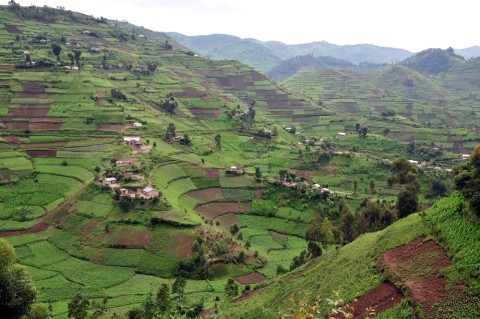Social media and social change

I stood in the college auditorium, giving a lecture about the Internet and its ability to organize for social change. An emerging generation cares deeply about the world and we are equipped with tools to gather people and communicate that have never been available before. I’m excited to see what happens when we begin to embrace new media for social justice.
A participant asked me, “So, what did your church do for KONY 2012?”
I knew who Kony was, of course. He was Joseph Kony, who led the Lord’s Resistance Army, a Ugandan Guerilla Group. A video about him had gone viral, and there were protests around the world to try to encourage awareness and justice. Invisible Children had a big push on (I believe) Holy Week.
I knew about the LRA before I watched the video. In 1992, I visited Uganda, met with the First Lady, Mrs. Museveni, and took tours of the devastation. The landscape of Uganda formed me in lasting ways. I ate and drank with many of the people who were directly affected by Resistance. So I was thankful that the story had gotten out.
But when it came to that particular question, I shook my head and responded, “Didn’t that big push take place during Holy Week? We had a lot going on that week.”
I explained that I didn’t really know enough about Invisible Children to feel comfortable jumping into their campaign. Our congregation's work had been focused a little more to the east. On Passion Sunday, the Deputy Assistant Secretary for African Affairs spoke about the refugee camps in the Horn of Africa. We thought about suffering and the death of Christ in light of those refugees. The church had also been working to set up a health network in Ethiopia to help women, children and people who suffer with AIDS. “But we didn’t put any KONY posters up around the city or anything,” I said.
She frowned and sighed. I could tell that she was disappointed by my answer. Even though we had been working in neighboring Ethiopia for many years, she seemed frustrated that we didn’t take part in that particular event.
It reminded me of one of the dangers of social media in social justice work (and there are many dangers). Social media can reduce activism to a fad-- something that we take part in because a particular Twitter hashtag is trending, a video has become viral, or a Facebook Cause has become popular. It can ignore the hard work that has been taking place over decades and discount a long-term strategy that a community might have.
And the Internet can become a tool to manipulate people. Especially in this election cycle, it can allow religious leaders to become pawns in a political party’s latest spin-game, encouraging us to exaggerate and vilify the other party’s positions.
It saddens me when my social justice friends discount and even mock the basic tools of communication and organizing that a new generation uses. They uplift the glory days of the 1960s, while belittling and negating the hard work of younger generations. But, this exchange reminded me of the other side of the issues. Those of us who are deep in the mire of social media and Internet culture also need to be aware of the short-term manipulations that can entangle us and keep us from long-term change.
Can #occupy’s work continue to move from an urban camping protest to a long-term strategy to combat the inequities in our country? Can we continue to struggle with the justice issues of educational debt, which are crippling so many young men and women in our country? Can we keep working on gender equality, fair wages, and the availability of contraception even after the Democrats stop decrying the “War on Women”? Can we take a hard look at the historic and present attempts to disenfranchise African Americans at the polls? Can we work for long-term solutions that will last beyond our momentary frustrations at the racism in our country? Can we keep struggling for justice for LGBTQs, even when the Chik-Fil-A debacle has died down? And can we work for environmental stewardship, caring for the earth that God entrusted us with, beyond the latest week of hot summer days?
As Christians who strive for social justice, we know that we need the fast and furious exposure that social media can bring. But we also need the long-term, careful work that takes decades.






